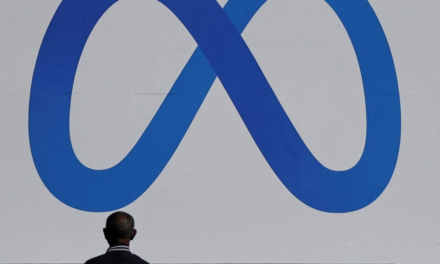(Photo by Robyn Beck / AFP) (Photo by ROBYN BECK/AFP via Getty Images)
The last hours before the expiration of the SAG-AFTRA actors contracts with major Hollywood media companies are ticking down with no authoritative detail on whether the union’s first strike in 43 years will be avoided.
The actors contract expires Friday night at midnight, though it’s possible the two sides will extend talks for a day or a week without calling for a strike. Union members already overwhelmingly authorized leadership to call a strike if a new deal isn’t finalized.
Earlier in the week, union leaders said initial negotiations had been “extremely productive,” but also acknowledged the remaining time before contract expiration left a very narrow window for agreement. Union membership is clearly ready for a fight; also this week, more than 300 actors – including Oscar winners such as Meryl Streep, Jennifer Lawrence and Glen Close – sent a letter to SAG-AFTRA leadership saying they support a strike unless a “transformative deal” can be secured.
The uncertainty has been the talk of creatives and business people across the industry. Should the actors join the writers on picket lines, it should quickly spill more fully into the living rooms of American consumers. Both the actors and writers are pushing for changes on pay, work conditions, and the looming threat of industry disruption by artificial intelligence.
The writers strike so far has had modest impacts on everyday consumer consumption of entertainment, in part because the streaming revolution provides easy access to Just So Much Stuff out there. But that pinch for consumers could change quickly if Hollywood sees its first double strike since 1960, and first actors strike since 1980.
Already, the Television Academy is discussing pushing the Primetime Emmys ceremony to the end of the year or beyond from its traditional early September timing. Also likely to get pushed in an extended strike are many if not most other shows that otherwise might debut in the traditional fall season of broadcast and cable networks.
Less likely to be impacted immediately is most Netflix programming, given the company’s long lead times to shoot all episodes, translate them into multiple languages, and have them ready for watching all at once across dozens of countries.
As well, with international hits such as Squid Game, Money Heist and Lupin, millions of its subscribers have already shown they don’t mind foreign languages or subtitles. And with only about a third of its subscribers in the United States and Canada, even a cessation of U.S. projects from an extended labor stoppage is unlikely to affect the majority of the company’s audiences.
That said, the strike by members of the Writers Guild of America – West has already shuttered all the broadcast networks’ late-night talk shows and NBC’s Saturday Night Live. As well, fans of topical weekly shows such as HBO’s Real Time with Bill Maher and This Week with John Oliver are also closed down (though these and similar shows traditionally go on summer hiatus around now anyway).
But an actors strike of even a few weeks in length would have an outsized additional impact magnifying what’s already happened around the two-month-old writer strike, shutting productions already underway and likely endangering the fall season of new shows and seasons on broadcast, cable and streaming.
In many cases during the first weeks of the writers strike, even WGA members who had dual roles as writer and showrunner, for instance, were expected to take part in ongoing productions, while avoiding anything that stepped into “writer” territory. An actors strike would shut down those productions completely, however, because no one could perform onscreen without risking union penalties as strikebreakers.
The bargaining issues for both the WGA and SAG-AFTRA are largely, though not completely, similar. As always, better minimum payments and health-care and pension contributions matter, but so too do some concerns from the new era of streaming and post-pandemic industry practice.
Residuals, paid because of continuing viewership/sales of a show and long an important source of sustainable income for working writers and actors, have evaporated in the system used by Netflix
NFLX
Even calculating what counts as a hit is impossible in the opaque streaming industry, which accords with no reliable third-party data on viewership to measure what’s a “hit.”
Nielsen, long the (controversial) arbiter of viewership in broadcast and cable has tried to assert a similar role in streaming, as have competitors such as iSpot.TV and Parrot Analytics. But prying the data out of reticent streamers has proven impossible so far.
Only Netflix publicly shares much of anything about its shows’ viewership, and that only for a set of Top 10 lists for feature-length projects and series, both English-language and non-English.
A further complication is the industry’s shifting uses for the streaming shows they’ve all commissioned. To cut costs, most of the big streaming services are now shelving dozens of underperforming shows. And other programs are being peddled to ad-supported services, generating more revenue for the services, but often not for the creative talent that made the show in the first place.
Actors would also like to see an end to the pandemic-forced process of creating their own audition tapes. Making the tapes consumes time and money, and the union would like limits on self-taping.
The bigger challenge is almost certainly the suddenly looming beast of artificial intelligence, with its potentially transformative impacts across the industry. It remains perhaps the most complicated and difficult issue facing negotiators.
The Directors Guild of America, the third of the Big Three Hollywood guilds and the only one never to have called a strike, agreed earlier this month to a contract with the media companies that included new payment formulas built around the size of the streaming service and its overseas reach.
But the deal was criticized by many writers and actors in part for its soft provisions on AI, which merely call for regular “consultations’ on AI impacts on film and TV production.
SAG-AFTRA has called AI “a real and immediate threat” to its members’ work, as the tools become more and more capable of mimicking and replacing actual human performers. Many members have expressed concerns that if the unions don’t get substantive guarantees now, it may be too late to do much about AI when a next round of contract talks comes up three years from now.





